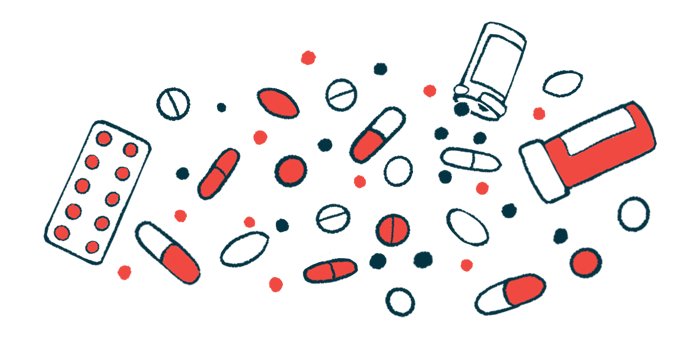1st CF patient screened for Phase 2 trial of adrulipase to treat EPI
Yeast-based enzyme may be more effective than PERT, derived from pigs
Written by |

A Phase 2 clinical trial of an optimized formulation of adrulipase, a yeast-derived enzyme to treat exocrine pancreatic insufficiency (EPI) in adults with cystic fibrosis (CF), has screened its first patient.
First Wave BioPharma, the therapy’s developer, anticipates dosing to start soon, with top-line results expected by mid-year. An open-label study, the SPAN trial will test the safety, tolerability, and efficacy of its formulation in about 12 patients, 18 years or older, at three U.S. sites.
“We are very pleased that patient screening has begun so soon after initiating the Phase 2 clinical trial,” James Sapirstein, First Wave’s president and CEO, said in a press release. “This urgency speaks to the collective focus of First Wave’s clinical development team, the investigators and trial sites, and our [clinical research organization] partner to conduct a successful Phase 2 clinical trial.”
A treatment for EPI with a ‘lower daily pill burden’ possible
EPI is common in people with CF, due to the thick mucus that accumulates in the pancreas and prevents the organ from secreting the enzymes required for digestion, particularly of fats.
Currently, the standard treatment for EPI is pancreatic enzyme replacement therapy (PERT), where enzymes typically derived from pigs are used to aid digestion and nutrient absorption.
Adrulipase is a lipase, or fat-digesting enzyme, derived from yeast rather than animals. Also an oral therapy, it packs the enzyme in microgranules to protect it from the acidic environment of the stomach, so it can reach the small intestine, where digestion mostly takes place, and break down fats. It might also allow for a lower daily dose than current treatments, according to FirstWave.
“We believe that there is great potential for a non-animal derived therapy with a lower daily pill burden that could improve the nutritional health of patients and their quality of life,” said Steven Boas, MD, founder of the nonprofit Cystic Fibrosis Institute and Cystic Fibrosis Center of Chicago. “My investigative team and I welcome the opportunity to participate in the Phase 2 clinical trial and to test the efficacy of the new formulation of adrulipase in the clinic.”
The Phase 2 trial’s primary efficacy measure is changes in the coefficient of fat absorption — CFA, a measure of the percentage of fat absorbed from the diet — with treatment. Secondary measures include stool weight, evidence of malabsorption, and the coefficient of nitrogen absorption, a marker of protein absorption.
The study will recruit adults currently using PERT, who have a CFA of at least 80%. A CFA above 80% is considered the minimum for a therapeutic effect in CF patients with EPI. It will be conducted at Boas’ Chicago center, and at the Central Florida Pulmonary Group in Orlando, Florida, and at Children’s Lung Specialists in Las Vegas, Nevada.
Participants will switch to adrulipase, starting on a low dose that, if necessary, will be gradually increased over three weeks to a medium dose and, potentially, further to a high dose. Safety will be evaluated one week after treatment is complete.
An NCT document with trial details, including eligibility and enrollment information, is expected to be available soon on the clinical trial website run by the National Institutes of Health and on the First Wave’s site under its pipeline tab, a company representative reported in an email exchange.
“Ultimately, our goal is to provide CF and chronic pancreatitis (CP) patients with a recombinant [engineered], non-porcine-derived therapeutic option that better addresses the numerous, life-altering symptoms they experience on a daily basis as a result of EPI,” Sapirstein said.
EPI affects more than 30,000 CF patients in the U.S., according to the Cystic Fibrosis Foundation, and nearly 90,000 chronic pancreatitis patients (when the pancreas is damaged by inflammation), according to the National Pancreas Foundation.







